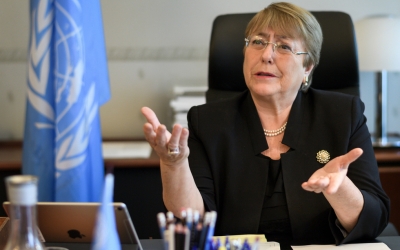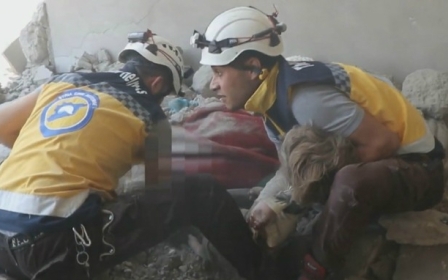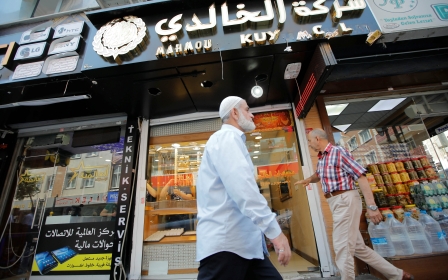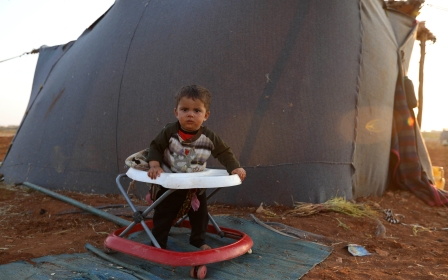Two-thirds of Security Council calls for UN probe into attacks on Syrian hospitals
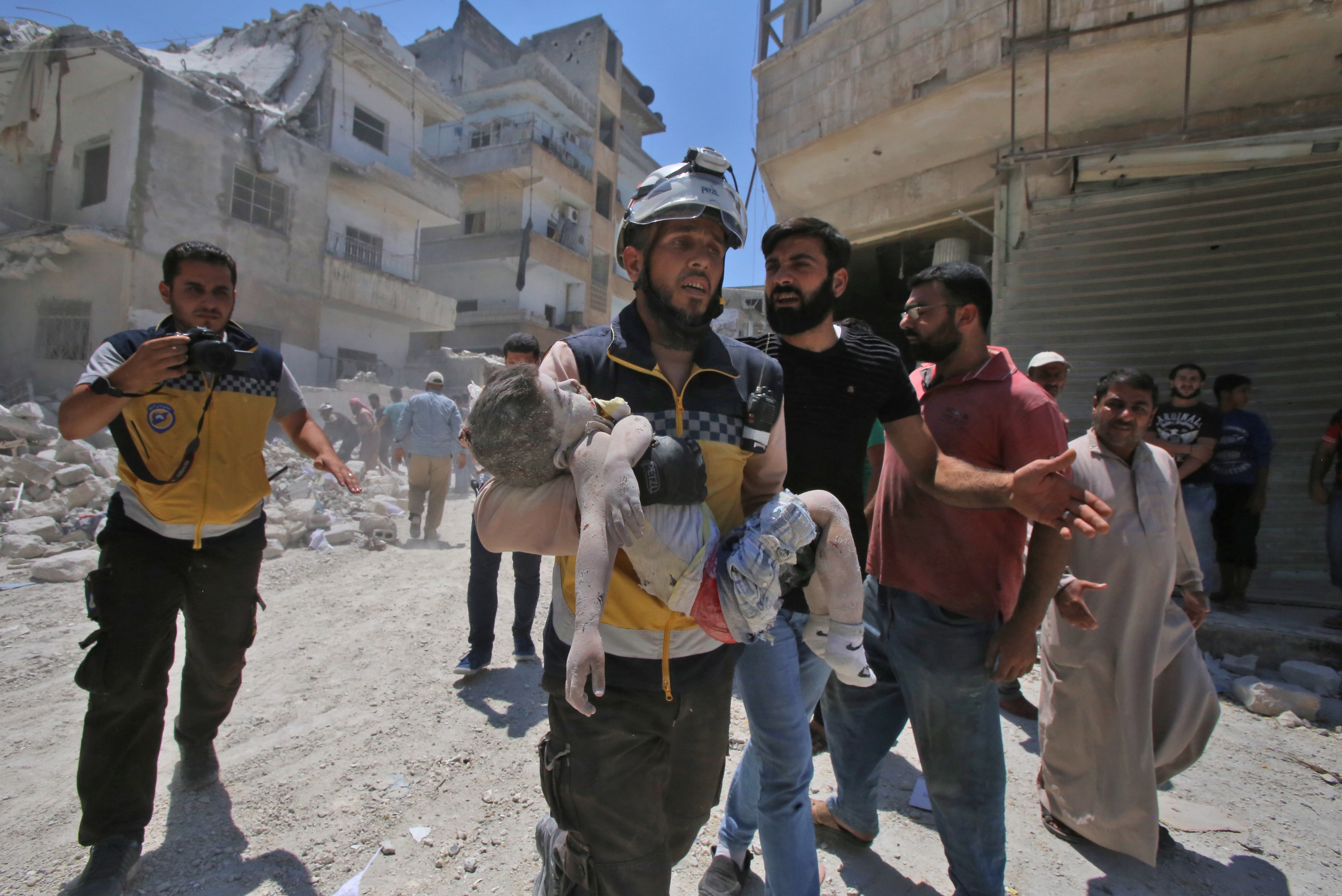
Two-thirds of the United Nations Security Council formally called on the international body's secretary general to investigate attacks on UN-supported medical facilities in northwest Syria, diplomats said.
Ten countries - including the United States, Britain and France - delivered the formal petition to Antonio Guterres on Tuesday, Reuters news agency reported.
At least 14 UN-supported healthcare facilities "have been damaged or destroyed in northwest Syria since the end of April", the countries told Guterres in their letter, which was seen by Reuters.
"We therefore respectfully request that you consider launching an internal UN investigation into attacks that have damaged or destroyed UN-supported facilities in northwest Syria and report back promptly," they said.
Earlier in the day, UN humanitarian chief Mark Lowcock urged the 15-member UNSC to help end the "bloody onslaught" in Syria's Idlib province.
New MEE newsletter: Jerusalem Dispatch
Sign up to get the latest insights and analysis on Israel-Palestine, alongside Turkey Unpacked and other MEE newsletters
The last rebel-held stronghold in the war-torn country, Idlib has seen an increase in deadly violence this year after a September 2018 ceasefire deal fell apart.
That agreement, brokered by Russia and Turkey, was meant to stave off a Syrian government offensive on the area.
"For more than 90 days now bombing and shelling by the Government of Syria, backed by the Russian Federation, has produced carnage in the so-called de-escalation zone of Idlib," Lowcock told the council.
Following Lowcock's appeal, Britain, France, the US, Germany, Belgium, Peru, Poland, Kuwait, Dominican Republic and Indonesia delivered the formal petition for an investigation.
While the UN has shared the locations of humanitarian facilities with the parties to the conflict in Syria, Lowcock told the Security Council that dozens of healthcare facilities have been struck since April, Reuters reported.
"Is that information used as it's intended, to protect facilities ... or is it being used to target facilities?" Lowcock told reporters.
Both the Syrian government and Russia deny targeting civilians or civilian infrastructure.
But in a report released on 26 July, UN human rights chief Michelle Bachelet said air strikes on schools, hospitals, markets and bakeries had killed at least 103 civilians, including 26 children, during the 10-day period before the report was released.
"These are civilian objects, and it seems highly unlikely, given the persistent pattern of such attacks, that they are all being hit by accident," Bachelet said.
At the time, Bachelet condemned "international indifference" in the face of the mounting deaths.
Idlib bombardment
Top UN officials have repeatedly condemned the Security Council's inaction on Syria, with several measures vetoed by Russia, an ally of Syrian President Bashar al-Assad and his government.
Syria's opposition has condemned the bombardment on Idlib as "genocide", while aid groups have branded the carnage in province the latest "nightmare" in the eight-year conflict.
More than 730 civilians have been killed in air strikes and shelling in Idlib since late April, according to the Syrian Observatory of Human Rights, a UK-based activist group.
Large swathes of the province were previously in the hands of al-Qaeda-linked group Hayat Tahrir al-Sham.
Over the past three months, the Syrian government offensive in Idlib has forced hundreds of thousands of people to flee their homes or temporary shelters in northwestern Syria and seek refuge near the border with Turkey.
The war in Syria has killed hundreds of thousands of people and displaced millions since it started in 2011 with a brutal crackdown on anti-government protests.
Middle East Eye delivers independent and unrivalled coverage and analysis of the Middle East, North Africa and beyond. To learn more about republishing this content and the associated fees, please fill out this form. More about MEE can be found here.


